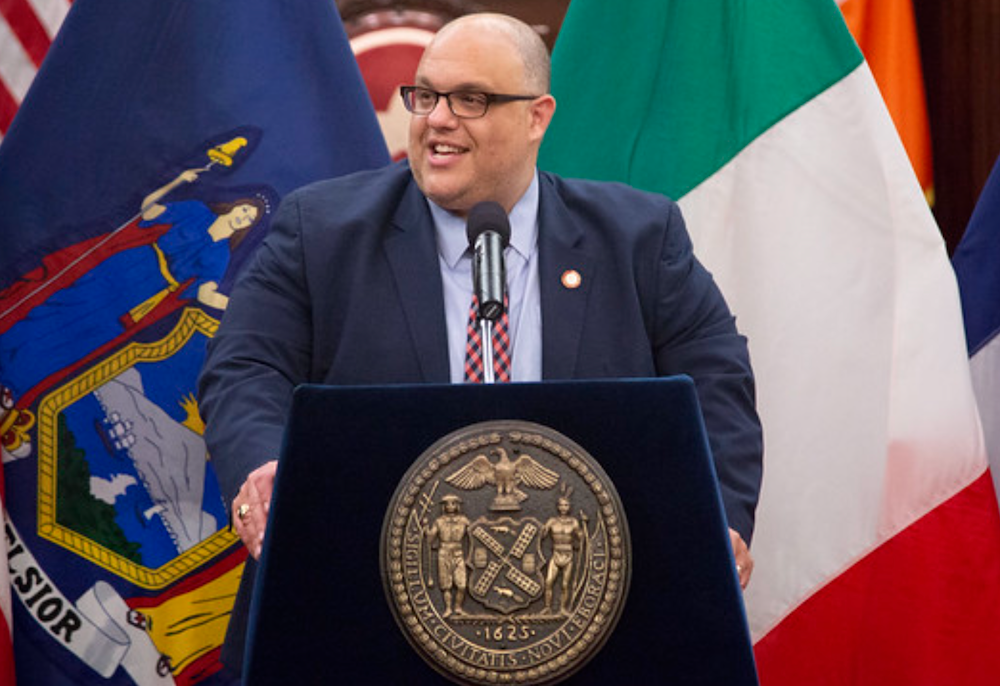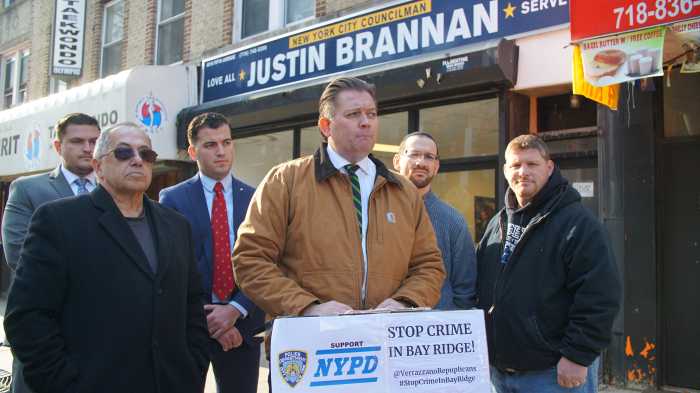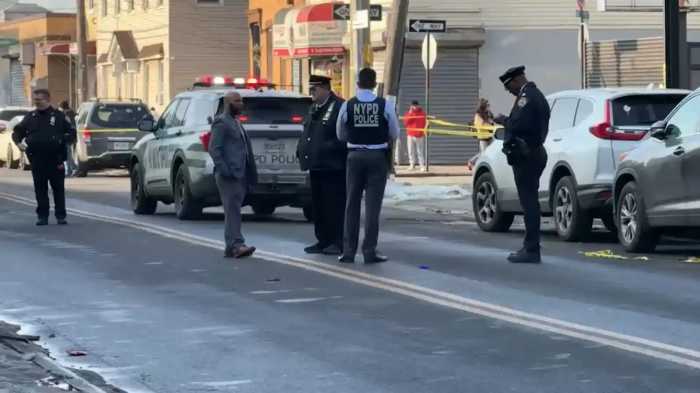The City Council approved on Thursday the creation of a citywide climate adaptation plan to ensure preparedness for extreme weather in all five boroughs.
The measure would require the Office of Long-Term Planning and Sustainability to develop and publish a climate adaptation plan that considers and evaluates various climate hazards impacting the City and its shorelines, such as extreme storms, heat, precipitation, and flooding.
The plan additionally includes recommendations for resiliency and adaptation measures to protect residents, property and infrastructure, prioritizing the areas with the highest vulnerability to climate hazards and particularly considering the potential impacts on environmental justice areas.
“This plan is the epitome of long overdue. By committing to a five-borough resiliency plan today, the city is bridging a major gap,” said Council Member Justin Brannan (D-Brooklyn), chair of the Committee on Resiliency and Waterfronts, and a leading sponsor on the legislation.
“New York City has never before put together a comprehensive plan to protect all New Yorkers from the inevitable effects of climate change. The climate crisis is here and we can no longer treat it as some abstract future. In passing this bill we promise to take our new reality seriously. Resiliency is a requirement of our most fundamental responsibility in city government: the safety of all New Yorkers,” he added.
Related to climate change and the environment, the City Council also passed legislation that would require the City to ensure that all school buses in use by Sept. 1, 2035 will be all-electric zero-emission school buses.
The measure, sponsored by Council Member Daniel Dromm (D-Queens), notes the replacement of school buses shall be subject to the commercial availability and reliability of all-electric zero-emission school buses, and the technical and physical availability of related planned infrastructure, including but not limited to charging stations and bus depots for all-electric zero-emission school buses.
To help reduce greenhouse gas emissions in New York City and protect New York City’s school children from fossil fuel-related pollutants, the legislation will also require the Department of Education to report to the Mayor and the Speaker on a variety of implementation targets within three reporting deadlines: July 1 of 2023, 2028, and 2033.
In two final pieces of legislation related to climate change/environment, the Council approved the establishment of an office of urban agriculture and an urban agriculture advisory board.
These measures will address some of the issues outlined in outgoing Speaker Corey Johnson’s 2019 Growing Food Equity report, in which several budgetary and legislative proposals were outlined to build food equity in the areas of food governance; hunger; food waste; school food and nutrition education; equitable access to healthy food; and urban agriculture.
“Urban agriculture needs to be a big part of our future as a City. It is a great tool in the fight against climate change and a practice that could help New York City be more self-sufficient as we face supply chain issues that could lead to food shortages,” said Council Member Ben Kallos (D-Manhattan), who sponsored the measures.
“This legislation creating an Office of Urban Agriculture and a corresponding advisory board for community input works to improve our City by promoting parks, gardens and green roofs. Whether it is improving access to healthy foods in low-income neighborhoods or even creating new jobs, urban agriculture will help in all these fights,” Kallos added.








